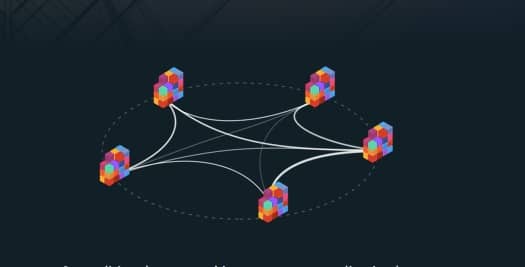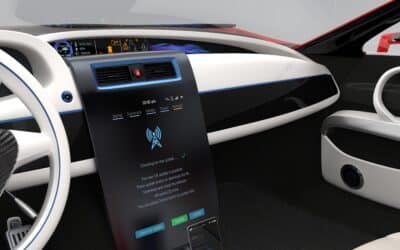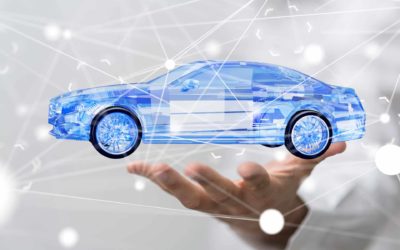The Blockchain has an immense potential for change for the entire economy and society. In this blog article, we describe why and how the blockchain can bring about a transformation. For companies in particular, it is important to understand the functionality and possible applications of blockchain technology at an early stage and to make it usable for themselves.
Trust is one of the central foundations for social cohesion and economic transactions. Trust is a critical factor especially when it comes to transactions between strangers. Trust arises either through long-standing acquaintance or friendship or through reputation, state guarantees or - as in the case of blockchain: through technology.
Inhaltsverzeichnis
Why companies like Uber and Airbnb are afraid of the blockchain: Their business model is in danger
Blockchain also brings with it disruptive potential. This is because the technology could soon replace companies like Uber and Airbnb, which are also trusted partners at the interface between customers and providers. This finding is surprising to some observers in that the Blockchain technology has so far become known mainly in connection with cryptocurrencies such as Bitcoin or Ether or Ethereum.
In this context, the blockchain much more than just the medium for the new digital currencies. Rather, it has the potential to entire economy to transformbecause it makes a fundamentally new approach possible. In order to use this technology for oneself, it is first important to understand what exactly the blockchain is.
What exactly is the Blockchain? A technology for digital accounting
The blockchain consists of a decentralised network structure. If you take the term literally, it is a (cryptographically secured) chaining of individual blocks. In each individual block, in turn Information stored that have a certain value.
Ultimately, the blockchain is a tool for "digital accounting". In this book, or more precisely a file, sensitive information such as amounts of money and related transactions, ownership, contractual information or any other information can be filed and stored securely.
In the meantime, there are numerous Application examplesthat have nothing to do with monetary transactions. Marriages could also be concluded via blockchain and stored in the same way as land register entries.

The blockchain is characterised by a decentralised network structure, whereby each piece of information is stored and changed equally at many different points in the network. Source: https://www.ethereum.org/
An important aspect of blockchain technology is the decentralised principle. The information is stored at many scattered nodes in the network and is equally updated there when there is a change. However, this structure also brings technical challenges. The more nodes there are, the longer it takes for all files on the blockchain to be updated after a transaction.
In addition to cryptographic encryption, this principle makes the System security off. If someone wanted to falsify information, they would have to compromise many individual nodes at the same time.
Smart contracts - the basis of cryptocurrencies and economic transactions
In addition to the cryptocurrencies already mentioned, one of the most promising applications of the blockchain is the Smart Contracts. These are Contracts or quasi-contractual constructswhich are stored in the blockchain. Even individual cryptocurrencies such as Ether, which serves as a currency in the Ethereum distributed system, ultimately consists entirely of smart contracts.
This makes Ethereum, for example, much more flexible in its use than its biggest competitor, Bitcoin. Ethereum can be used not only to make payments, but also to Crowdfunding projects organise, conduct elections or conclude insurance policies. As soon as the pre-agreed contractual conditions are fulfilled, the contractual partners are automatically informed and the information is entered into the blockchain.
Individualised services in the IoT environment
Another important field of application for blockchain technology and smart contracts is Industry 4.0 and the IoT (Internet of Things). This is because networked systems in which individual components can communicate with each other are ideally suited to using this interface for transactions. Compared to previous solutions, the blockchain offers a much higher degree of security here. Security and Trustworthiness as well as more Automation options.
Also the Connected Car offers numerous points of contact for transactions that can be carried out via the blockchain. Insurance can be taken out for individual journeys, just as one's own car can be rented out by the hour for a fee. An electric car, on the other hand, could sell part of the electricity stored in it to other drivers or feed it into the electricity grid against payment when there is a peak in demand there (Smart Grid).
The Smart Factory is at the heart of Industry 4.0, which is why we have looked at it in depth in this article.
Licensing and proof of copyright
All areas where digital products and services are sold are likely to be the first to integrate blockchain. The Licensing at Software sales could, for example, be much more straightforward and precise in the future thanks to the blockchain. Through the precise regulation of access rights, the doubtless identification of users and the exact documentation of sales or even use, licences can be issued in accordance with the individual needs be purchased.
In a similar way, reproduction rights could be accurately tracked when music is purchased. And after the transformation of the music industry through iPod, iTunes and Spotify, another revolution could take place through the direct sale of music by artists directly to fans. More generally Copyright proofs via blockchain possible and associated remuneration models in Smart Contracts adjustable.
The future: Small hurdles, but huge potential
There are still small hurdles to be overcome before the blockchain can realise its immensely large potential. At the moment, the main hurdles are the Transaction costs and the Speed in criticism. However, it is only a matter of time before challenges like this are solved. As soon as it becomes economical to trade even the smallest amounts, a whole range of new business models and transaction forms can emerge. Citizens could vote, store marriage contracts and process the purchase of a house, including lending, via the blockchain.
Blockchain technology creates Trust and SecurityIf all contracting parties know that a transaction is guaranteed to take place as agreed, this automatically ensures trust. Through smart contracts and the blockchain, it is possible to Essential parts of economic life and society completely reorganised become.


![What is Edge Computing - [at] Blog Basics](https://www.alexanderthamm.com/wp-content/uploads/edge-computing-blog-400x250.jpg)







0 Kommentare